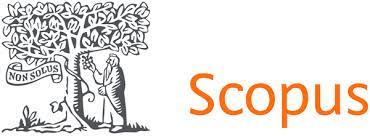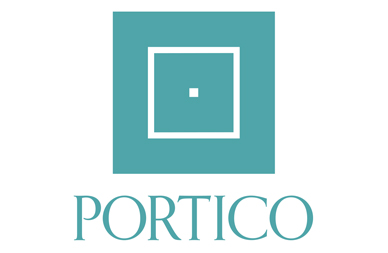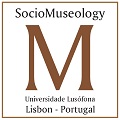About the Journal
About the Journal
The Journal of Sociomuseology (Cadernos de Sociomuseologia) is an open access twice-yearly scientific publication, edited by the Department of Museology at the Lusophone University (ISSN 1646-3714).
It was founded in 1993 and is currently the oldest and continuing Journal of Museology in Portuguese. Its priority objectives are the publication of scientific papers in the specific area of Sociomuseology, for whose international consolidation the Department of Museology has contributed in a permanent way, giving support to the training in Sociomuseology in general and in particular to Masters and Doctoral programs and Postdoctoral research.
The Journal publishes original articles in Portuguese, English, French and Spanish.
It was reorganized in 2013 to follow international scientific publications guidelines and best practices and started a new numbering system: nº1-2013 with a digital edition.
Since that the journal has been accepted in several international indexing networks, (SCOPUS; ERIH PLUS; DOAJ; MIAR; Latindex; REDIB…) has joined Portico Preservation Network and assigns Digital Object Identifier (DOI) registered by CrossRef (10.36572). It is distributed within the Platform Public Knowledge Project (PKP)and published under Creative Commons Attribution-NonCommercial-ShareAlike 4.0 International (CC BY-NC-SA 4.0)
The Editorial and Referee Board is comprised of internationally renowned scholars from the field of Museology and Sociomuseology, from Brazil, Canada, Spain, France, India, Portugal, UK and the USA.
Journal of Sociomuseolgy Ethics and Good Practice Framework
Publication Ethics
The Journal of Sociomuseolgy respects the directions provided by the Committee on Publication Ethics (COPE) and follow its Code of Conduct and Best Practice Guidelines. Authors, editors and reviewers are expected to be aware of, and comply with, the best practices in publication ethics. Any publication ethics issue that may arise will be handled according to COPE flowcharts.
Editorial Policies
The Editor and Editorial Board are responsible for the published articles and must ensure their scientific quality, the transparency of the selection procedures and managing the publication within a reasonable time. The Editorial Team should ensure the scientific quality of the journal, foster scientific debate, be impartial in the management of articles proposed for publication, ensure freedom of expression, designate reviewers of article proposals. The editorial team shall ensure disclosure of the writing and selection submission rules adopted by the Journal of Sociomuseology.
Evaluation of articles:
Articles will be submitted anonymously to reviewers, who should always be experts in the subject area.
Editors will follow the article publishing decisions suggested by the reviewers.
Authors are entitled to submit their complaints to publishers.
Publishers are not paid for their editorial work.
Publishers and reviewers must maintain confidentiality about the procedures under their responsibility, contributing to the protection of individual authors' data.
Authorship
The authors are primarily responsible for their content and originality. In the case of collective works, the first author should ensure that the remaining authors effectively contributed to the work submitted for publication. All authors should take into account the comments and corrections suggested by the reviewers.
Plagiarism
Papers submitted should be based on original research. Any text or illustration taken from work done by other authors should be properly cited and referenced in the Bibliography in accordance with the citation standards used. This obligation applies regardless of the form adopted, in particular: servile copy, tampered copy, paraphrase or translation.
The Journal of Sociomuseolgy takes issues of copyright infringement, plagiarism or other breaches of best practices in publication very seriously. Plagiarism, in whatever form, constitutes a lack of ethics and scientific fraud. Submitted articles may be checked with duplication-checking software.
If an article is found to have plagiarized other work or included third-party copyright material without permission or with insufficient acknowledgement, or if the authorship of the article is contested, the journal reserves the right to take action including, but not limited to: publishing an erratum or corrigendum (correction); retracting the article; canceling its publication; and/or taking appropriate legal action.
Prior Publication
The submission must be original, not previously published and not under consideration by other publications. Submitting the same manuscript to more than one journal at the same time constitutes unethical publishing behavior and is not acceptable.
If the article is not published within one year, the author may submit it to other publications with prior information to the Journal of Sociomuseology management.
Conflicts of Interest
The Committee on Publication Ethics (COPE) states in its Guidelines on Good Publication Practice (2003) that: “Conflicts of interest arise when authors, reviewers, or editors have interests that are not fully apparent and that may influence their judgments on what is published. They have been described as those which, when revealed later, would make a reasonable reader feel misled or deceived”.
Authors must disclose any conflict of interest prior to the article’s publication. If the research was publicly or privately funded, it should be mentioned in the conflict-of-interest statement.
The reviewers should not consider manuscripts in which they have conflicts of interest with any of the authors, companies, or institutions connected to the papers.
The editorial team safeguard possible conflicts of interest by submitting the articles to external reviewers, following the process of blind assessment. The anonymity of the authors and evaluators will guarantee impartiality and intellectual independence, ensuring unbiased review.
Data sharing and reproducibility
The Journal of Sociomuseolgy encourages authors to share the data and other artefacts supporting the results in the paper by archiving it in an appropriate public repository. Authors may provide a data availability statement, including a link to the repository they have used, in order that this statement can be published in their paper. Shared data should be cited.
Data Protection
Protecting the confidentiality of individual information is a guarantee of commitment by the Editors. The Editors will demand from the authors of the empirical research articles the guarantee of the same procedure and that the research subjects have expressed their written consent to participate in the research. This problem does not arise when it is understood that empirical research articles, even without the consent of the research subjects, do not harm the dignity of the subjects involved.
Complaints and Appeals
Whenever authors or readers consider it pertinent, they are entitled to submit complaints and/or allegations of misconduct to the publishers. The issue(s) must be addressed by email to the editors, cadernos.sociomuseologia@ulusofona.pt who will analyze the inquiry and may consult the Editorial Board and/or external experts to come up with a decision. Any publication ethics issue that may arise will be handled according to COPE flowcharts. The editors are committed to responding to all complaints submitted. To appeal a decision made by the Editorial Team, authors must contact by email the journal’s editors within 30 days of receipt of the decision.
Editorial Team:
The director, the editors and the associate editors are responsible for the published articles and must ensure their scientific quality and the transparency of the selection procedures. The editorial team should ensure the scientific quality of the journal, foster scientific debate, be impartial in the management of articles proposed for publication, ensure freedom of expression, and designate reviewers of article proposals. The anonymity of the authors and evaluators will guarantee impartiality and intellectual independence. The editorial team shall ensure disclosure of the writing and selection submission rules adopted by the Journal of Sociomuseology.
Authors:
Papers submitted should be based on original research. The authors of the articles are primarily responsible for their content and originality. Any text or illustration taken from work done by other authors should be properly cited and referenced in the Bibliography in accordance with the citation standards used. This obligation applies regardless of the form adopted, in particular: servile copy, tampered copy, paraphrase or translation.
Plagiarism, in whatever form, constitutes a lack of ethics and scientific fraud.
When a work that is wholly or partially plagiarized is detected, its publication should be canceled, and the appropriate procedures activated.
In the case of collective works, the first author should ensure that the remaining authors effectively contributed to the work submitted for publication. Authors should not simultaneously submit their work to several journals.
If the research was publicly or privately funded, it should be mentioned in the conflict of interest statement.
Evaluation of articles:
Articles will be submitted anonymously to reviewers, who should always be experts in the subject area.
Editors will follow the article publishing decisions suggested by the reviewers.
Authors are entitled to submit their complaints to publishers.
Publishers are not paid for their editorial work.
Publishers must maintain confidentiality about the procedures under their responsibility, contributing to the protection of individual authors' data.












